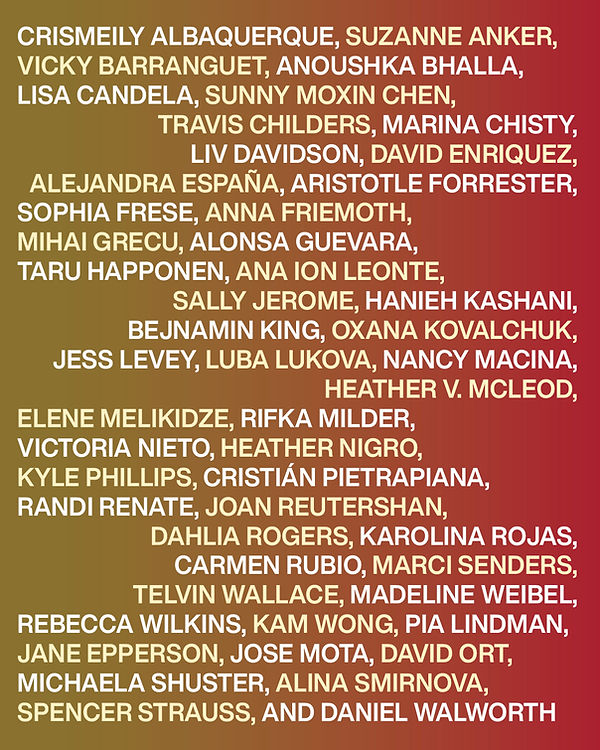The Lorax
The Lorax
curated by Charles Moore
On View Through Oct 3rd, 2025.
Full text, written by Charles Moore
“Unless someone like you cares a whole awful lot, nothing is going to get better. It's not.” - The Lorax, Dr. Seuss.
Each of us has a part to play in changing the world. This is something we are told from a young age, often encouraging us to chase after our inner dreams and aspirations. However, this statement resonates with us differently in an age where the climate crisis is at the forefront of personal, political, and cultural conversations. “The Lorax” exhibition is an educational eco-adventure that illuminates a diverse set of perspectives on environmental sustainability and stewardship. The exhibition is meant to be interacted with by individuals of all
ages, giving a point of access to these often-difficult conversations for children and their families. Through the array of artistic disciplines and styles engaged by the artists, complex and nuanced issues of environmentalism
forge deeper connections with the audience, educating and motivating them to be the ones who care and make a change for the sake of our planet.
Within the exhibition, we see artists who approach these topics with a youthful whimsy. Much like the
namesake of this exhibition, "The Lorax" by Dr. Seuss, despite being a children's book, transcends its genre to deliver a profound and timeless message about environmental stewardship. Published in 1971, its narrative
confronts issues of deforestation, pollution, and corporate greed with a fantastical yet earnest tone, resonating with readers of all ages. The enduring relevance of "The Lorax" lies in its ability to communicate complex ecological concepts in a digestible and accessible manner, making it a valuable resource for inspiring
environmental consciousness among young audiences and their families. Transforming our world into a surreal and captivating scene, artists draw upon the unbridled sense of imagination, and perhaps a bit of nostalgia for
their older viewers, to present a universal call to action regarding ecological responsibility. Amidst bright colors and unusual forms, a deeper connection to the natural world can be fostered through empathy, accountability,
and activism.
While looking at these issues and prospective solutions through youthful eyes, today we are often confronted by
the harsh realities of how the modern world has left our world in such a state of disrepair. Among the iconic theorists on the subject is Naomi Klein with her seminal work, "This Changes Everything: Capitalism vs. The Climate". Published in 2014, Klein's book offers a comprehensive examination of the profound implications of
climate change on global capitalism, but not without glimmers of hope, exploring avenues for transformative change towards sustainability. Like the thought-provoking nature of Klein’s reexamination of the impact our
world’s structure has on the environment, the artists of this exhibition provoke deep critical reflections on issues of consumption, economic paradigms, and societal values that contribute to the failing state of our environment we see today. Through their creative expressions, practitioners engage audiences in dialogues about the urgency
of collective action, the possibilities for alternative models of development, and the moral imperative of prioritizing environmental sustainability in shaping our collective future.
Whether through the innocence and nostalgia of childhood or an intense critical eye dissecting the structures of the world as we know it, the artists of “The Lorax” create a collective portrait of contemporary environmental thought. Through their styles, approaches, selection of materials, and techniques, we witness an intersection of history, ethics, and socioeconomics with the deeply personal. They discover ways to evoke meaning in paint, sculpture, or multidisciplinary forms. Whether foreign or familiar, viewers cannot help but reflect on their own relationship with the environment. Here, they become acutely aware of the impact their actions have on our ecosystems and are encouraged to find ways to protect them.
.png)











